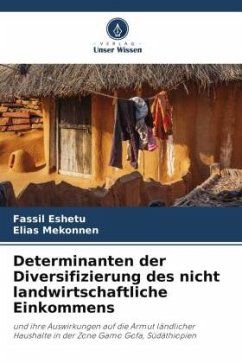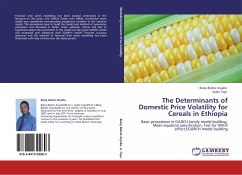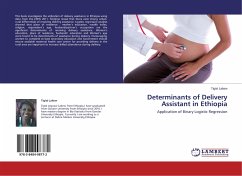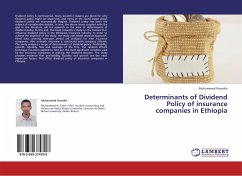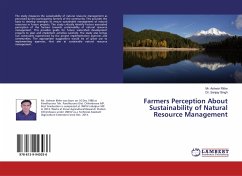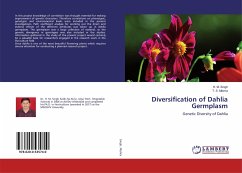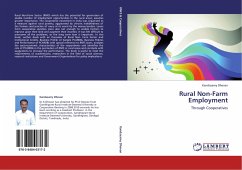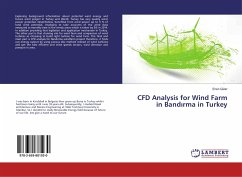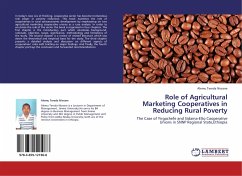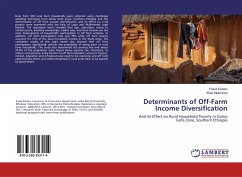
Determinants of Off-Farm Income Diversification
And its Effect on Rural Household Poverty in Gamo Gofa Zone, Southern Ethiopia
Versandkostenfrei!
Versandfertig in 6-10 Tagen
27,99 €
inkl. MwSt.

PAYBACK Punkte
14 °P sammeln!
Data from 500 rural farm households were collected using multistage sampling technique from Gamo Gofa Zone, Southern Ethiopia and the determinants of off farm income diversification and its effect on rural poverty were examined with the help of Logit and Multinomial Logit Models. The regression result revealed that age, education, access to infrastructure, livestock ownerships, credits uses, and farm income are the main determinants of households' participation in off farm activities. In addition, off farm participation rate was 76% while off farm income accounts for 51% of the total household...
Data from 500 rural farm households were collected using multistage sampling technique from Gamo Gofa Zone, Southern Ethiopia and the determinants of off farm income diversification and its effect on rural poverty were examined with the help of Logit and Multinomial Logit Models. The regression result revealed that age, education, access to infrastructure, livestock ownerships, credits uses, and farm income are the main determinants of households' participation in off farm activities. In addition, off farm participation rate was 76% while off farm income accounts for 51% of the total household income in the study areas. The estimation results of the Logit model also showed that off farm participation significantly reduces the probability of being poor of rural farm households. The study also determined the poverty line and about 29.8% of the population were found below poverty line. Therefore, to reduce rural poverty, entry barriers to off farm activities ( access to finance, market, education and infrastructures) need to be overcome and off farm opportunities (micro and small enterprises) in rural areas have to be expand by government.



